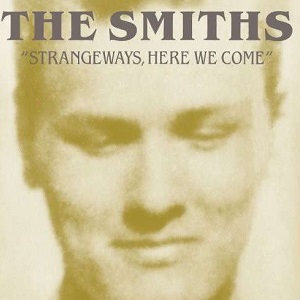The songwriters consider it their best work, and it’s pointless to dispute an opinion, but it’s not one we share. The best songs are in the middle, so before you get there you must navigate the baroqueness of “A Rush And A Push And The Land Is Ours”, which has no guitars on it. They do return on “I Started Something I Couldn’t Finish”, which also repeats a growling “rrr” from the track before. “Death Of A Disco Dancer” starts well, with a White Album groove and even a developed Morrissey melody, but the last three minutes escalate into a pointless jam that could have been faded earlier. But on an already short album, the two-minute perfection of “Girlfriend In A Coma” stands out, particularly because the narrator is not the usual Morrissey fop. That guy returns on “Stop Me If You Think You’ve Heard This One Before”, another classic should’ve-been-the-first-single with great guitars and slightly, only slightly dated keyboard tinkles.
While it wasn’t their longest title, “Last Night I Dreamt That Somebody Loved Me” is just begging to be ridiculed, but that would show ignorance of its magnitude. Beginning with a lengthy piano dirge over what sounds like a soccer riot, it gives way to an even more sweeping main section, showing Marr at his orchestral best. For wordplay, “Unhappy Birthday” doesn’t quite live up to its title, but it’s an awfully sour lyric against a sprightly 12-string gallop. That’s good, because the bile is not spared on “Paint A Vulgar Picture”, a diatribe against the continual exploitation of pop idols, though the “Reissue! Repackage!” lines are hollow considering the compilations the band released in its lifetime and since. Besides repeating a motif from side one, “Death At One’s Elbow” is an undercooked rockabilly strum that should have waited to be a B-side, but since most of their B-sides were better than their album tracks… well, never mind. The fitting finale, and their best album ender save compilations, is “I Won’t Share You”, which says much more about the Morrissey-Marr relationship than either would admit.
While it wasn’t planned that way, Strangeways, Here We Come was indeed the last Smiths album, and they were over almost as soon as they began. It’s too bad, because it didn’t have to end like this, and although the experimentation here doesn’t always work, it does show promise for whatever they might have done next. Or not. The momentum they’d built over the past couple of years had to run out sometime.
The Smiths Strangeways, Here We Come (1987)—3½

No comments:
Post a Comment